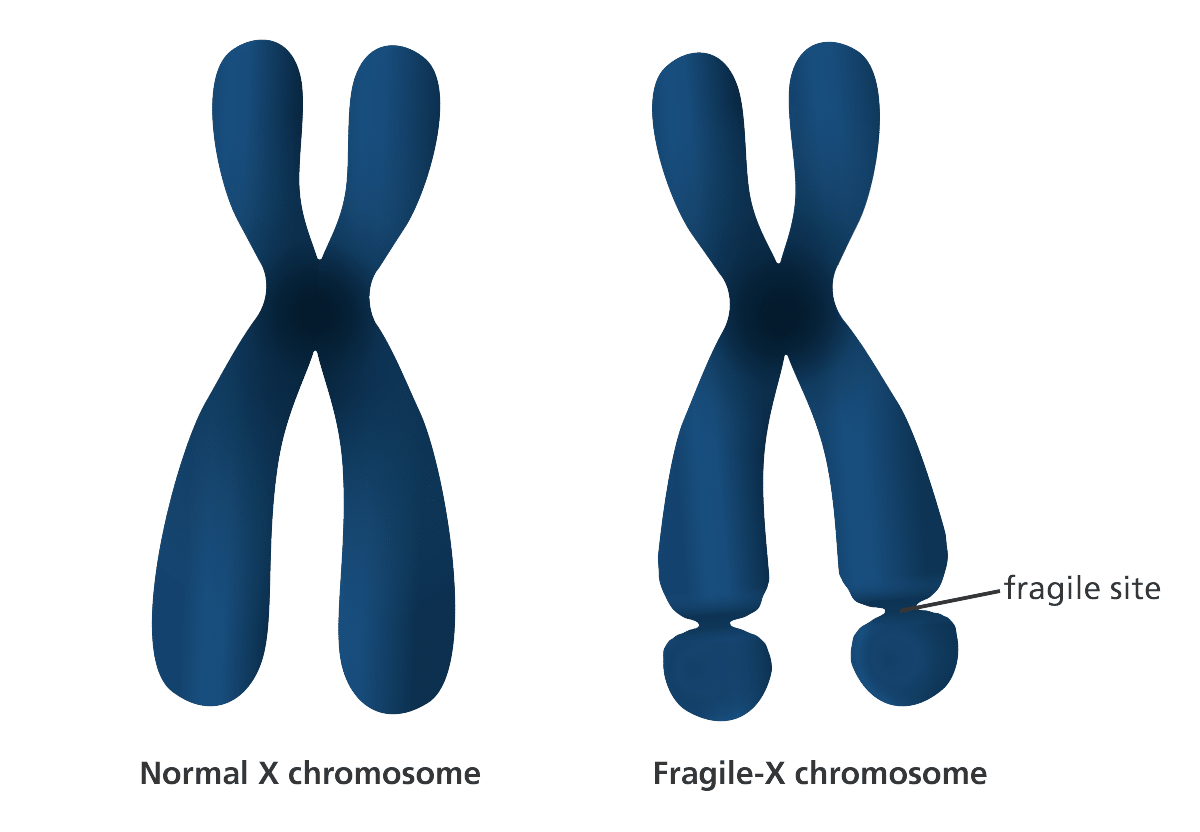Fragile X syndrome is a genetic condition causing intellectual disability affecting both males and females, but females usually have milder symptoms. It is estimated that about 90,000 people in Australia are impacted by Fragile X in some way – as carriers of Fragile X, or with Fragile X syndrome. Fragile X syndrome is the leading cause of inherited intellectual disability, affecting about 1 in 4,000 males and about 1 in 6,000 females.
Fragile X-associated Disorders inherited conditions are caused by alterations (expansions) in the FMR1 gene (Fragile X gene) which is located on the X chromosome. A diagnosis of Fragile X can be made at any age, by doing a blood test. This test can show whether or not you are affected by Fragile X, and whether or not you are a genetic carrier. If you or your partner have Fragile X or are a carrier, and are expecting a baby, you might be able to get a pre-natal test to find out whether your baby will be affected.

Symptoms of Fragile X
These disorders include a wide range of physical, intellectual and behavioural symptoms that can affect family members in different ways. Symptoms include:
- Trouble learning skills like sitting, crawling or walking
- Problems with language and speech
- Hand-flapping and not making eye contact
- Temper tantrums
- Poor impulse control
- Anxiety
- Extreme sensitivity to light or sound
- Hyperactivity and trouble paying attention
- Aggressive and self-destructive behaviour in boys
Some children with fragile X also have changes to their face and body that can include:
- A large head
- A long, narrow face
- Large ears
- A large forehead and chin
- Loose joints
- Flat feet
- Enlarged testicles (after puberty)
Treatment
Although there is no cure for Fragile X, treatments (including some medications) can help improve quality of life, especially if received early on. Ideally, each person with Fragile X will be cared for by a multi-disciplinary team of health professionals. Therapy can be used to treat learning disabilities. Medication may be used to treat anxiety and mood disorders.
Other Resources:
- Fragile X Association of Australia
- To understand Fragile X Syndrome more you can read more personal stories here.
- https://www.yourgenome.org/facts/what-is-fragile-x-syndrome
Images: https://www.yourgenome.org/facts/what-is-fragile-x-syndrome






























